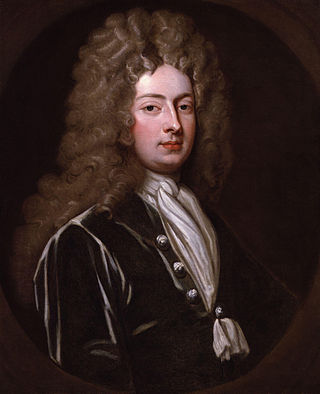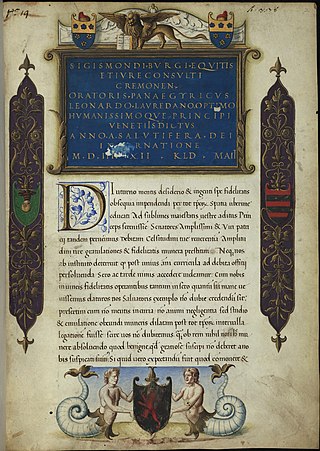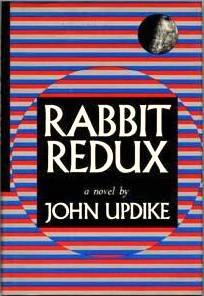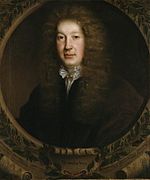Related Research Articles

William Congreve was an English playwright, poet and Whig politician. His works, which form an important component of Restoration literature, were known for their use of satire and the comedy of manners genre. Notable plays he wrote include The Old Bachelor (1693), The Double Dealer (1694), Love for Love (1695), The Mourning Bride (1697) and The Way of the World (1700). He died in London, and was buried at the Poets' Corner in Westminster Abbey.

John Dryden was an English poet, literary critic, translator, and playwright who in 1668 was appointed England's first Poet Laureate.

The Stuart Restoration was the reinstatement in May 1660 of the Stuart monarchy in England, Scotland, and Ireland. It replaced the Commonwealth of England, established in January 1649 after the execution of Charles I, with his son Charles II.

A panegyric is a formal public speech or written verse, delivered in high praise of a person or thing. The original panegyrics were speeches delivered at public events in ancient Athens.

Sir William Davenant, also spelled D'Avenant, was an English poet and playwright. Along with Thomas Killigrew, Davenant was one of the rare figures in English Renaissance theatre whose career spanned both the Caroline and Restoration eras and who was active both before and after the English Civil War and during the Interregnum.

Edmund Waller, FRS was an English poet and politician who was Member of Parliament for various constituencies between 1624 and 1687, and one of the longest serving members of the English House of Commons.

The Rump Parliament was the English Parliament after Colonel Thomas Pride had commanded his soldiers, on 6 December 1648, to purge the Long Parliament of members against the Grandees' intention to try King Charles I for high treason.
This article contains information about the literary events and publications of 1660.

Matthew Prior was an English poet and diplomat. He is also known as a contributor to The Examiner.
Nahum Tate was an Anglo-Irish poet, hymnist and lyricist, who became Poet Laureate in 1692. Tate is best known for The History of King Lear, his 1681 adaptation of Shakespeare's King Lear, and for his libretto for Henry Purcell's opera, Dido and Aeneas. He also wrote the lyrics to a Christmas carol, "While shepherds watched their flocks".

Absalom and Achitophel is a celebrated satirical poem by John Dryden, written in heroic couplets and first published in 1681. The poem tells the Biblical tale of the rebellion of Absalom against King David; in this context it is an allegory used to represent a story contemporary to Dryden, concerning King Charles II and the Exclusion Crisis (1679–1681). The poem also references the Popish Plot (1678).

Sir Richard Blackmore, English poet and physician, is remembered primarily as the object of satire and as an epic poet, but he was also a respected medical doctor and theologian.
Samuel Pordage was a 17th-century English poet. He is best known by his Azaria and Hushai (1682), a reply to John Dryden's Absalom and Achitophel.

Restoration literature is the English literature written during the historical period commonly referred to as the English Restoration (1660–1688), which corresponds to the last years of Stuart reign in England, Scotland, Wales, and Ireland. In general, the term is used to denote roughly homogenous styles of literature that centre on a celebration of or reaction to the restored court of Charles II. It is a literature that includes extremes, for it encompasses both Paradise Lost and the Earl of Rochester's Sodom, the high-spirited sexual comedy of The Country Wife and the moral wisdom of The Pilgrim's Progress. It saw Locke's Treatises of Government, the founding of the Royal Society, the experiments and holy meditations of Robert Boyle, the hysterical attacks on theatres from Jeremy Collier, and the pioneering of literary criticism from John Dryden and John Dennis. The period witnessed news becoming a commodity, the essay developing into a periodical art form, and the beginnings of textual criticism.

Rabbit Redux is a 1971 novel by John Updike. It is the second book in his "Rabbit" series, beginning with Rabbit, Run and followed by Rabbit Is Rich, Rabbit At Rest, published from 1960 to 1990, and the related 2001 novella, Rabbit Remembered.

Anvari (1126–1189), full name Awhad ad-Din 'Ali ibn Mohammad Khavarani or Awhad ad-Din 'Ali ibn Mahmud was a Persian poet.
Redux is a post-positive adjective meaning 'brought back, restored' used in literature, film and video game titles.

Elizabeth Thomas was a British poet and letter writer. She was part of an important artistic group in London and John Dryden named her "Corinna". However, she suffered from lifelong financial precarity, romantic disappointment, and latterly, health problems. Her reputation was damaged by Alexander Pope and she spent three years in a debtor's prison near the end of her life.

The British Poet Laureate is an honorary position appointed by the monarch of the United Kingdom on the advice of the prime minister. The role does not entail any specific duties, but there is an expectation that the holder will write verse for significant national occasions. The laureateship dates to 1616 when a pension was provided to Ben Jonson, but the first official Laureate was John Dryden, appointed in 1668 by Charles II. On the death of Alfred, Lord Tennyson, who held the post between November 1850 and October 1892, there was a break of four years as a mark of respect; Tennyson's laureate poems "Ode on the Death of the Duke of Wellington" and "The Charge of the Light Brigade" were particularly cherished by the Victorian public. Four poets, Thomas Gray, Samuel Rogers, Walter Scott and Philip Larkin turned down the laureateship. Historically appointed for an unfixed term and typically held for life, since 1999 the term has been ten years. The holder of the position as at 2024 is Simon Armitage who succeeded Carol Ann Duffy in May 2019 after 10 years in office.

The term Golden Age comes from Greek mythology, particularly the Works and Days of Hesiod, and is part of the description of temporal decline of the state of peoples through five Ages, Gold being the first and the one during which the Golden Race of humanity lived. After the end of the first age was the Silver, then the Bronze, after this the Heroic age, with the fifth and current age being Iron.
References
- ↑ Johnson, Samuel (1804). The Lives of the Poets, Etc. [With a Portrait.]. Dublin: Pat. Wogan. p. 164. Retrieved 24 March 2020.
- ↑ Wood, James, ed. (1907). . The Nuttall Encyclopædia . London and New York: Frederick Warne.
